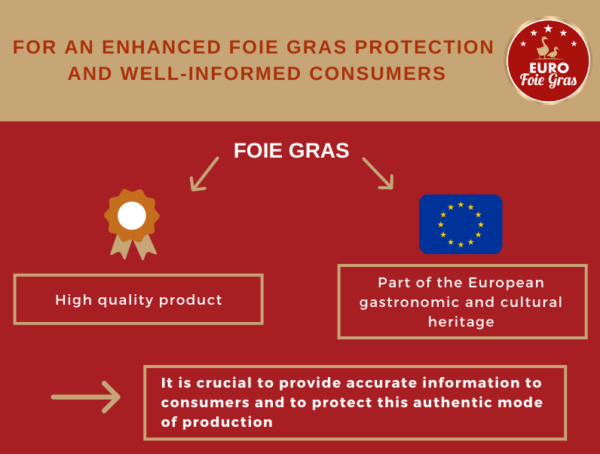EU marketing standards: minimum liver weights ensure the quality of foie gras

The EU Commission published a staff working document on the evaluation of marketing standards.
This document concludes that EU marketing standards have generally “been effective in achieving their intended objectives, without causing significant unintended/unexpected effects (…)”. Moreover, the document states that the cost of EU marketing standards are justifiable and proportionate to the benefits achieved, regardless of the sector.
The current EU marketing standards define raw foie gras as duck livers of at least 300gr and goose livers of at least 400gr. If this definition would be removed, the report highlights that “this would not guarantee the presence of hepatic fatty cellular hypertrophy, which is considered to be essential to the taste and quality of the product.” It adds that these minimum weights are the “only available means for the national competent authorities to control the product in a simple way.” Removing these weights criteria would thus mislead the consumer.
However, there is no definition for processed foie gras, which represents 80% of the foie gras sold. The problem is explained in the document: “A specific assessment revealed that the definition of ‘foie gras’ was perceived as having some limitations in preventing fraudulent practices, because there was no EU definition for processed foie gras (France is alone in having a national definition).”
Fraudulent practices are frequent, due to the luxury character of the product.
Therefore, in order to ensure the quality of foie gras and protect consumers, Euro Foie Gras calls for maintaining the definition of raw foie gras and adding the definition of processed foie gras.
Read the executive summary of the staff working document on the evaluation
Read our position paper on marketing standards for foie gras
